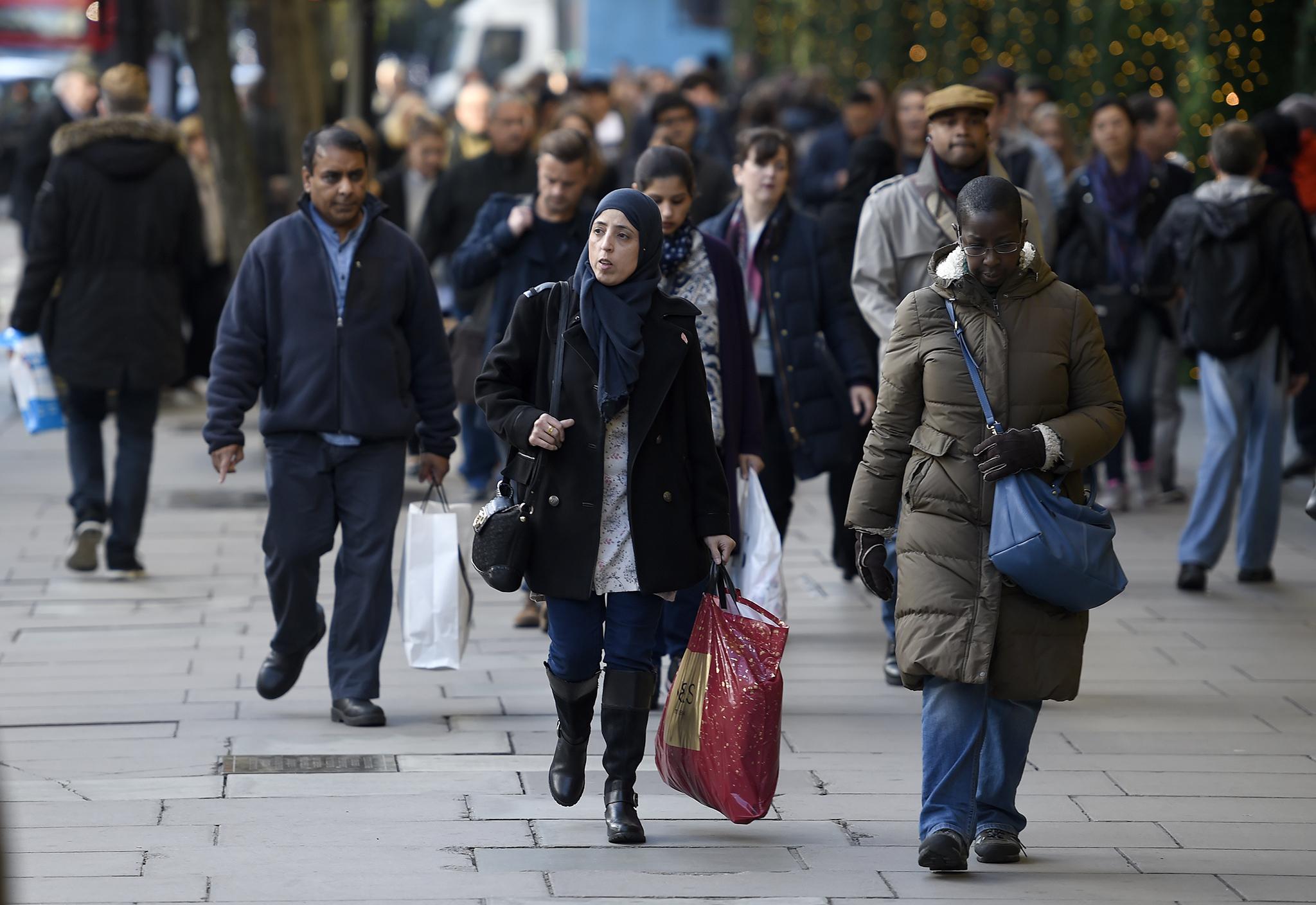Disparity in living standards as minority ethnic groups up to £8900 worse off than white households
Report highlights disparity in living standards between ethnic groups in the UK is 'ignored' as it finds Bangladeshis see fastest growth in income among minorities

Large gaps in income and living standards between different ethnic groups persist in the UK, according to research.
A typical Bangladeshi household brings in £8,900 less than the average White British household, whilst Pakistani households bring in £8,700 less.
The Resolution Foundation think tank said households originating from a black African background earn 22 per cent less than the White British average.
The report also provides a more positive outlook, pointing to a substantial rise in incomes across a long period for particular ethnic groups.
Bangladeshi households saw the fastest growth of any ethnic group in incomes between 2001 and 2016, with earnings rising three times as much as White British households.
Gender gaps play a crucial role in both the disparity and change in living standards, the Resolution Foundation said.
Only 37 per cent of Pakistani women and 35 per cent of Bangladeshi women are employed in comparison to 72 per cent of White female employment.
However, Bangladeshi women have closed the employment gap by 18 per cent in the period between 2001-03 and 2015-17.
Employment of men from both Bangladeshi and Pakistani background had also increased at faster rates than white men.
Adam Corlett, senior economic analyst at the Resolution Foundation, said understanding of how living standards differ across ethnic groups is "significant and persistent” and “too often go ignored”.
“However, we should be encouraged by the fact that there have been big improvements in some instances, such as the impressive employment gains seen among Black, Bangladeshi and Pakistani men and women”, he said.
In July, a study had found poor representation of black, Asian and ethnic minority (BAME) groups at the top end of organisations. Only one in 10 management jobs went to a BAME candidate and only half of FTSE 100 leaders are seen to be actively championing greater diversity.
Subscribe to Independent Premium to bookmark this article
Want to bookmark your favourite articles and stories to read or reference later? Start your Independent Premium subscription today.

Join our commenting forum
Join thought-provoking conversations, follow other Independent readers and see their replies